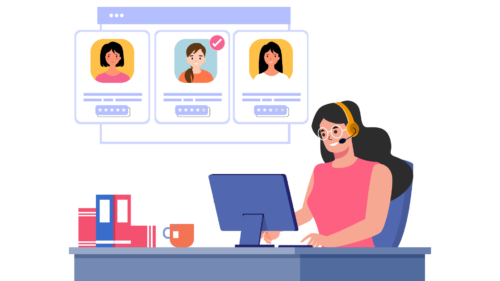
In the ever-evolving world of recruitment, the right software platform can be the catalyst for transforming your hiring process. With many options available, selecting the ideal recruiting software becomes a crucial decision that can shape the future of your talent acquisition efforts. In this article, we will delve into everything you should know about recruitment software. Let’s get started.
Types of Recruitment Software
Recruitment software comes in various forms, each designed to tackle specific aspects of the hiring process. However, let’s categorize them into two types.
The two primary types of recruitment software are Recruitment Marketing Platforms (RMPs) and Applicant Tracking Systems (ATS).
Recruitment Marketing Platforms
RMPs provide tools to build talent pipelines, manage candidate relationships, and enhance the overall recruitment experience. They harness the power of marketing techniques to attract and engage potential candidates effectively. Recruitment Marketing Platforms can be categorized as either point solutions or comprehensive platforms known as Candidate Relationship Management (CRM) software. Point solutions address specific needs, while CRM platforms offer a complete suite of tools for end-to-end candidate management.
Applicant Tracking Systems
ATS software streamlines the tracking and management of candidates throughout the recruitment process. It offers features such as centralized candidate databases, resume parsing, candidate screening, interview scheduling, and collaboration tools. An ATS acts as a centralized hub, making candidate management efficient and ensuring a seamless hiring workflow.
As an ATS provides a full suite of solutions in one place, companies go for the best and most innovative applicant tracking systems to improve their recruitment process.
Key Features to Consider When Selecting the Right Recruiting Software Platform
When choosing recruitment software, it is crucial to evaluate the key features and how they align with your recruitment needs. Consider the following essential features:
1. Candidate Management and Screening
An effective software platform should provide a centralized candidate database that allows you to store and access candidate information easily. Look for features like resume parsing, keyword searching, and customizable filters to efficiently screen and identify the most suitable candidates for your open positions.

2. Interview and Hiring Workflow Automation:
Streamlining the recruitment process is vital, and automation plays a significant role in achieving this goal. Look for software platforms that offer interview scheduling, interview kits, scorecards, and customizable hiring workflows. These features will enhance efficiency, consistency, and collaboration throughout the hiring process.
3. Communication and Engagement Tools:
Effective communication is crucial for successful recruitment. Look for software platforms that provide robust communication and engagement tools, such as email templates, list segmentation, and engagement tracking. Reminders and task management capabilities will also help you stay organized and maintain consistent communication with candidates.
4. Analytics and Reporting:
Data-driven insights enable you to measure the effectiveness of your recruitment efforts and make informed decisions. Look for software platforms that offer comprehensive analytics and reporting features, including team productivity reports, sourcing analytics, and engagement analytics. These features will enable you to track key metrics, identify areas for improvement, and refine your hiring strategy.
Our customers rated Vultus Recruit as the High Performing ATS and the easiest-to-use and implement recruitment software. Book a free demo to learn more about Vultus.
Tips for Choosing the Best Recruiting Software
To make the right choice for your business, consider the following tips:
Identify Your Recruitment Challenges: Analyze your current recruitment process and identify your specific challenges. This will help you understand the essential features your recruiting software needs to address.
Evaluate Software Features: Evaluate the features offered by different software platforms and ensure they align with your recruitment needs. Consider candidate management and screening, workflow automation, communication tools, and analytics capabilities.
Consider Budget and Scalability: Consider your budget and the scalability of the software platform. Choose a solution that offers the right balance between features and affordability, ensuring it can grow with your business.
Read User Reviews and Testimonials: Gather insights from other HR professionals and recruiters who have experience with the software platforms you are considering. User reviews and testimonials can provide valuable perspectives on the pros, cons, customer support, and overall user experience. You can read our customer reviews here.
Wrapping Up
Choosing the right recruiting software platform is critical to step up your hiring process. By understanding the types of recruitment software available, evaluating key features, and following essential tips, you can select a platform that aligns with your recruitment challenges and supports your long-term growth and success. Remember, the right software platform is not a substitute for skilled recruiters but a powerful tool that empowers them to unlock their true potential and bring exceptional talent to your organization.
To receive and stay updated about related content:





